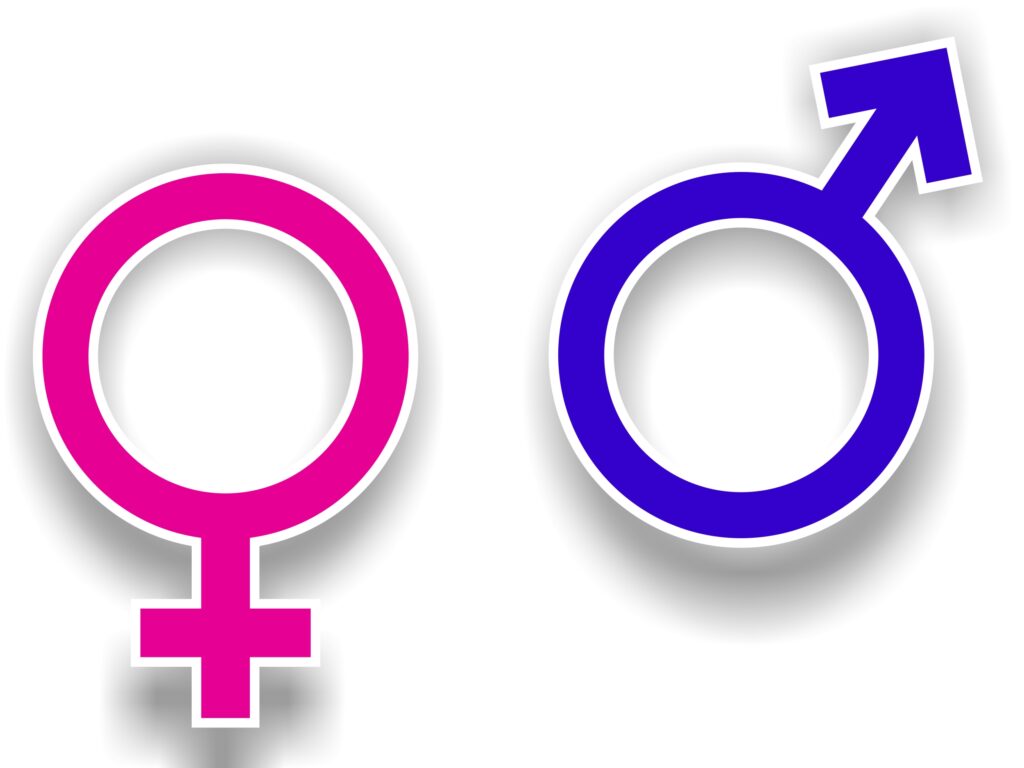Kate Lanz identifies the key characteristics of the Alpha personality and provides insight and guidance on how to deliver an in-depth coaching programme.
The Alpha personality is a force to be reckoned with, and none more so than in the initial meeting between a coach and a strong and formidable Alpha male or female. Whether they have chosen coaching or if they have been selected to receive coaching they are likely to be in full Alpha mode – asserting their authority, showing supreme self-confidence to avoid admitting their fears or vulnerabilities, and trying to control the coach.
There is much to admire in the Alpha personality, whose very characteristics drive success. One of these characteristics is mental toughness, as identified in recent research from The Center for Applied Neuroscience. Mental toughness is made up of a number of different behaviours which are: Self belief, ambition, optimism and competitiveness. These are tremendously laudable behaviours, but if taken to the extreme can actually be the seeds of the Alpha’s undoing. Bob Diamond could be seen as a high profile case in point. These characteristics can also prevent Alpha personalities from being open to learning and coaching, yet are the very aspects of personality that need to be understood, controlled and modified.
 "…there is never the luxury of time. An Alpha personality will, if generous, give up 30 minutes for a coach to prove themselves, before they absent themselves and blame poor coaching."
"…there is never the luxury of time. An Alpha personality will, if generous, give up 30 minutes for a coach to prove themselves, before they absent themselves and blame poor coaching."Whether the Alpha has chosen coaching, or been asked to attend coaching, they will already be in competition with the coach from the moment they walk in the room. For the coach, it is important not to get hooked by this subtle ‘prove yourself‘ dynamic, as the coach is unlikely to win until they’ve earned the right to truly engage from the Alpha’s point of view. And there is never the luxury of time. An Alpha personality will, if generous, give up 30 minutes for a coach to prove themselves, before they absent themselves and blame poor coaching. This can quickly ruin a coach’s reputation with the client.
To work successfully with the Alpha personality, coaches must quickly spot the combination of behaviours as identified above and dig to identify the degree to which they are present. This can then guide the strategies employed to get the Alpha’s attention and be able win them over in coaching.
Take Sue, the newly appointed head of a large division in a global brands company. She was moving between countries to take up this new promotion and had a stellar track record on the commercial side of the company. This was her first sizeable general manager role. Her new boss had asked her to see a coach to think about and prepare for certain aspects of the transition, notably managing her way round some of the big stakeholder relationships, some of which were particularly challenging. Sue opened the session by saying she had never felt less like she needed coaching support in any time during her career. This was an interesting start, which highlighted the killer behavioural combination at play from the outset. The coach should show no concern at this provocation to pass the first ‘prove yourself’ test.
One of the things that the Alpha struggles with the most is acknowledging their own sense of vulnerability and the degree to which this makes them feel anxious. So, if a coach reacts with their own anxiety in being challenged it can be contagious and put the client in touch with their own vulnerability. This will cause the Alpha to reject the coach as they believe vulnerability undermines the very core of what makes them successful. The coach needs to model calm, containing confidence from the first moment in front of the client. The observable behaviour of not responding anxiously is the beginning of earning the right to coach the Alpha personality.
In the case of Sue, I absorbed the remark by commenting that this was often the case and otherwise did not respond to her opening gambit. Instead, I asked her to tell me a little about herself and how she had come to this point in her career and what had prompted her to take on this new role. We then discussed her major insights and learnings as a leader over her career to date. This enabled her to showcase her intellect, openness to learning and her difficulties, but from a positive point of view. It provided lots of information about the four key behaviours: Self belief, ambition, optimism and competitiveness. She started to relax somewhat and feel in touch more with her competence rather than her unconscious anxiety.
"The coach needs to model calm, containing confidence from the first moment in front of the client. The observable behaviour of not responding anxiously is the beginning of earning the right to coach the Alpha personality."
Armed with specific examples from her own history, I was able to reflect back her strength and competence in respect of each of these areas. Notably I could genuinely say, drawing on her examples, that she demonstrated a high level of self awareness. My assessment at this point was that she was probably coachable. The four behaviours were not showing up as so overblown as to make her impervious to reflection and real learning.
Now I had to create a value-add moment and I wanted to further test her coachability. I reflected back, with genuine feeling, that I was not sure whether she did indeed need coaching at this point. She seemed very self-aware and able to apply things that she was learning from a leadership point of view. In so doing I had subtly ticked the self-belief box in her head as she picked up that I believed in her. Bear in mind this only works if it’s authentic and you mean it. With that she immediately said, "There is a difficult situation I currently have in my team and I’d be interested in your opinion." I had passed the ‘earn the right’ test. She told me about a member of her team whose behaviour was puzzling. I offered an interpretation of what might be going on. She was interested, as she had not thought about it like that before. She had learned something and I had added some value that had got her attention. She concluded that she would be interested in the personal exploration that coaching afforded whilst recognising that there were no burning issues for her.
My hypothesis: she could see how coaching could help her deliver against her ambitions for herself. By paying attention to the four behaviours that are key elements of mental toughness, the degree to which they are present, not falling into triggering the hidden anxiety and by adding value fast, I had won this Alpha over and the coaching could begin. One thing that I would say about coaching Alphas is that once you do genuinely get past this tipping point with them they tend to embrace the work. They absolutely want to continue their success and once convinced that coaching can help to add value, they can often be super-engaged and a joy to coach.
Kate Lanz is founder of Lanz Executive Coaching. Kate has practised as a coach internationally for over 14 years and brings a powerful blend of psychological depth combined with 12 years of senior level business experience to her work. She became interested in the psychology of leadership and performance at work as a General Manager herself. Kate later undertook a BSc in Psychology, trained as a coach and later as an accredited coaching supervisor.
Kate Lanz identifies the key characteristics of the Alpha personality and provides insight and guidance on how to deliver an in-depth coaching programme.
The Alpha personality is a force to be reckoned with, and none more so than in the initial meeting between a coach and a strong and formidable Alpha male or female. Whether they have chosen coaching or if they have been selected to receive coaching they are likely to be in full Alpha mode – asserting their authority, showing supreme self-confidence to avoid admitting their fears or vulnerabilities, and trying to control the coach.
There is much to admire in the Alpha personality, whose very characteristics drive success. One of these characteristics is mental toughness, as identified in recent research from The Center for Applied Neuroscience. Mental toughness is made up of a number of different behaviours which are: Self belief, ambition, optimism and competitiveness. These are tremendously laudable behaviours, but if taken to the extreme can actually be the seeds of the Alpha's undoing. Bob Diamond could be seen as a high profile case in point. These characteristics can also prevent Alpha personalities from being open to learning and coaching, yet are the very aspects of personality that need to be understood, controlled and modified.
 "...there is never the luxury of time. An Alpha personality will, if generous, give up 30 minutes for a coach to prove themselves, before they absent themselves and blame poor coaching."
"...there is never the luxury of time. An Alpha personality will, if generous, give up 30 minutes for a coach to prove themselves, before they absent themselves and blame poor coaching."Whether the Alpha has chosen coaching, or been asked to attend coaching, they will already be in competition with the coach from the moment they walk in the room. For the coach, it is important not to get hooked by this subtle 'prove yourself' dynamic, as the coach is unlikely to win until they've earned the right to truly engage from the Alpha's point of view. And there is never the luxury of time. An Alpha personality will, if generous, give up 30 minutes for a coach to prove themselves, before they absent themselves and blame poor coaching. This can quickly ruin a coach's reputation with the client.
To work successfully with the Alpha personality, coaches must quickly spot the combination of behaviours as identified above and dig to identify the degree to which they are present. This can then guide the strategies employed to get the Alpha's attention and be able win them over in coaching.
Take Sue, the newly appointed head of a large division in a global brands company. She was moving between countries to take up this new promotion and had a stellar track record on the commercial side of the company. This was her first sizeable general manager role. Her new boss had asked her to see a coach to think about and prepare for certain aspects of the transition, notably managing her way round some of the big stakeholder relationships, some of which were particularly challenging. Sue opened the session by saying she had never felt less like she needed coaching support in any time during her career. This was an interesting start, which highlighted the killer behavioural combination at play from the outset. The coach should show no concern at this provocation to pass the first 'prove yourself' test.
One of the things that the Alpha struggles with the most is acknowledging their own sense of vulnerability and the degree to which this makes them feel anxious. So, if a coach reacts with their own anxiety in being challenged it can be contagious and put the client in touch with their own vulnerability. This will cause the Alpha to reject the coach as they believe vulnerability undermines the very core of what makes them successful. The coach needs to model calm, containing confidence from the first moment in front of the client. The observable behaviour of not responding anxiously is the beginning of earning the right to coach the Alpha personality.
In the case of Sue, I absorbed the remark by commenting that this was often the case and otherwise did not respond to her opening gambit. Instead, I asked her to tell me a little about herself and how she had come to this point in her career and what had prompted her to take on this new role. We then discussed her major insights and learnings as a leader over her career to date. This enabled her to showcase her intellect, openness to learning and her difficulties, but from a positive point of view. It provided lots of information about the four key behaviours: Self belief, ambition, optimism and competitiveness. She started to relax somewhat and feel in touch more with her competence rather than her unconscious anxiety.
"The coach needs to model calm, containing confidence from the first moment in front of the client. The observable behaviour of not responding anxiously is the beginning of earning the right to coach the Alpha personality."
Armed with specific examples from her own history, I was able to reflect back her strength and competence in respect of each of these areas. Notably I could genuinely say, drawing on her examples, that she demonstrated a high level of self awareness. My assessment at this point was that she was probably coachable. The four behaviours were not showing up as so overblown as to make her impervious to reflection and real learning.
Now I had to create a value-add moment and I wanted to further test her coachability. I reflected back, with genuine feeling, that I was not sure whether she did indeed need coaching at this point. She seemed very self-aware and able to apply things that she was learning from a leadership point of view. In so doing I had subtly ticked the self-belief box in her head as she picked up that I believed in her. Bear in mind this only works if it's authentic and you mean it. With that she immediately said, "There is a difficult situation I currently have in my team and I'd be interested in your opinion." I had passed the 'earn the right' test. She told me about a member of her team whose behaviour was puzzling. I offered an interpretation of what might be going on. She was interested, as she had not thought about it like that before. She had learned something and I had added some value that had got her attention. She concluded that she would be interested in the personal exploration that coaching afforded whilst recognising that there were no burning issues for her.
My hypothesis: she could see how coaching could help her deliver against her ambitions for herself. By paying attention to the four behaviours that are key elements of mental toughness, the degree to which they are present, not falling into triggering the hidden anxiety and by adding value fast, I had won this Alpha over and the coaching could begin. One thing that I would say about coaching Alphas is that once you do genuinely get past this tipping point with them they tend to embrace the work. They absolutely want to continue their success and once convinced that coaching can help to add value, they can often be super-engaged and a joy to coach.
Kate Lanz is founder of Lanz Executive Coaching. Kate has practised as a coach internationally for over 14 years and brings a powerful blend of psychological depth combined with 12 years of senior level business experience to her work. She became interested in the psychology of leadership and performance at work as a General Manager herself. Kate later undertook a BSc in Psychology, trained as a coach and later as an accredited coaching supervisor.





